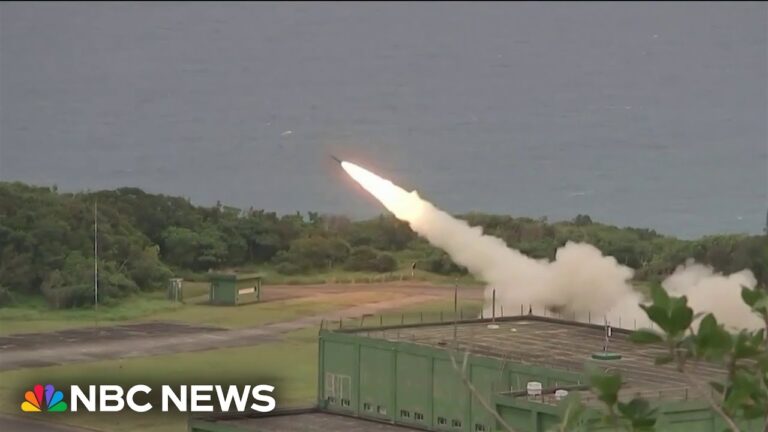Video at the bottom!
In a significant move for Taiwan’s defense, a live fire drill featuring the US-made HIMARS (High Mobility Artillery Rocket Systems) marks a crucial step in enhancing the self-governing island’s military capabilities. Arriving late last year, these advanced systems, similar to those utilized by Ukrainian forces, have the ability to strike targets 185 miles away—well beyond China’s southeastern coast. With more HIMARS units scheduled for delivery next year, Taiwan is intensifying its efforts to bolster defense amid heightened tensions with Beijing.
Taiwan’s military leadership expresses confidence in its preparedness, underscoring the importance of upgraded equipment and strategies. The island, which China views as its territory, faces increasing pressure from the mainland, with President Xi Jinping openly signaling intentions to unify Taiwan with China, even hinting at the potential use of force.
To counterbalance these threats, Taiwan has significantly ramped up its defense spending, investing billions in U.S. arms, including drones, missiles, and upgraded fighter jets. Moreover, military service has been extended to one year, and reservist training has also increased. U.S. military personnel are actively involved in training Taiwanese soldiers, further stressing the imperative of combat readiness as part of a broader U.S. commitment to deter any Chinese aggression.
Amid these developments, there is ongoing debate about the reliability of U.S. support. Concerns were heightened after former President Trump’s comments regarding Taiwan’s semiconductor industry and financial responsibilities for defense. Additionally, uncertainties surrounding U.S. support for Ukraine may fuel apprehensions in Taipei about potential U.S. responses to a Chinese invasion.
Taiwan’s leadership is navigating these complexities while striving to maintain a strong alliance with the U.S. President Tsai Ing-wen recently pledged to enhance purchases of American goods amid tariff tensions, labeling the situation as “friendly friction.” However, as China intensifies military exercises in the Taiwan Strait—including recent amphibious landing drills—the urgency for clearer signals from Washington grows. U.S. Indo-Pacific Command’s Admiral Samuel Paparo cautioned that these maneuvers should not be dismissed as mere drills but should be interpreted as rehearsals, leaving Taiwan vigilant and seeking assurance of continued support from the United States.


